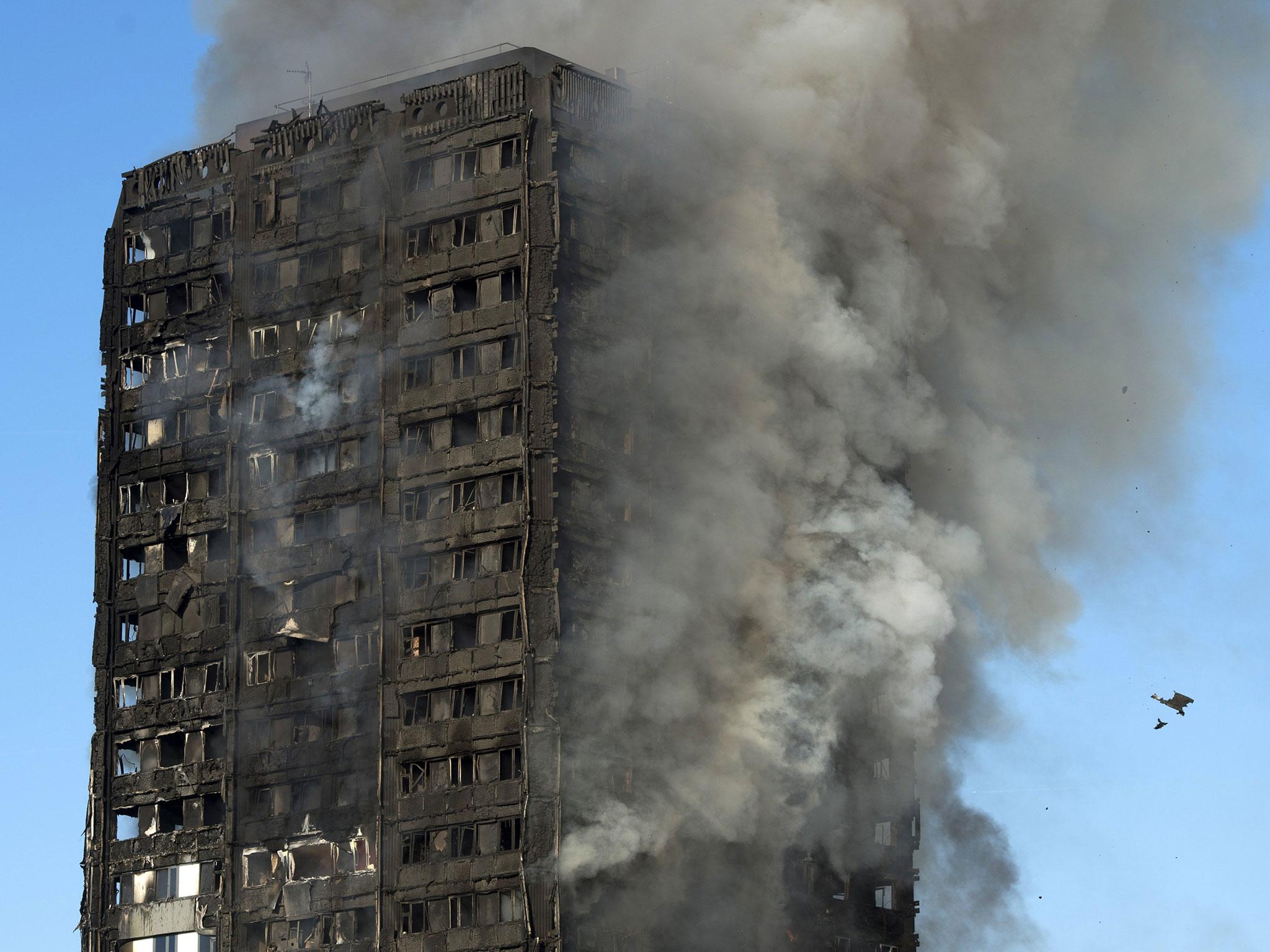After the Grenfell Tower tragedy, the Government cannot ignore the UK's millions of renters any longer
This is a sad indictment of our failing housing policy. We need decent housing in which we are all safe

Your support helps us to tell the story
From reproductive rights to climate change to Big Tech, The Independent is on the ground when the story is developing. Whether it's investigating the financials of Elon Musk's pro-Trump PAC or producing our latest documentary, 'The A Word', which shines a light on the American women fighting for reproductive rights, we know how important it is to parse out the facts from the messaging.
At such a critical moment in US history, we need reporters on the ground. Your donation allows us to keep sending journalists to speak to both sides of the story.
The Independent is trusted by Americans across the entire political spectrum. And unlike many other quality news outlets, we choose not to lock Americans out of our reporting and analysis with paywalls. We believe quality journalism should be available to everyone, paid for by those who can afford it.
Your support makes all the difference.The Grenfell Tower tragedy is still unfolding. What we know now is at least six people are dead and 74 injured, 20 critically. Going by previous disasters such as this, it will take months or perhaps years for the full story to emerge, longer still for any individuals to be held accountable if they are found to be at fault.
But what we do know with more certainty is the environment within which this devastating fire took hold. Standards in housing have been allowed to fall and regulation has not kept up with practice. Worse still, tenants are routinely ignored and treated like an annoyance.
Attempts to improve housing laws since 2010 have largely failed. A private members bill on protecting renters from revenge evictions was filibustered out by two Tory MPs. Watered-down parts of the bill later found their way into law, but have been a disappointing failure.
Labour’s attempt to bring in a “fit for human habitation” clause into the last Housing and Planning Act were also rejected. Many observers noted that 72 MPs who were landlords voted against this. The landlord lobby has consistently campaigned against improvements in tenants’ rights and regulation, calling the move to protect tenants from revenge evictions a ‘charter for anti-social tenants’.
Moves to improve fire safety in tower blocks following the fire at Lakanal House were quietly sat on. As it now appears with Grenfell Tower, tenants were advised to stay put and wait to be rescued. Six people died in the 2009 tragedy, and only this year was landlord Southwark Council convicted and fined.
It's not just mainstream social housing and other rented properties that poses a potential problem. The housing crisis and anti-immigrant legislation has pushed the most vulnerable people on the margins into the most dangerous housing, with some resorting to sleeping in industrial and derelict buildings.
In April 2014, firefighters attended a fire at the former Hendon Football Club – a derelict building, only to discovered 30 people were living inside it when it went up in flames. From 2010 to 2015 in London, there were 432 such fires in buildings that were never designed to be slept in, let alone home; 14 people have died and 84 people injured as a result.
The quality of the housing we have is also in question. There are reports that the fire alarms could not be heard in Grenfell Tower. A similar problem emerged in a new-build housing association block in Hackney. Fortunately the fire was minor and the systems upgraded. It was part of a number of issues resulting from the how the block was built and is now subject to legal action.
Given the number of issues being found with new build housing association homes, urgent action is needed to ensure these are safe. Poor design and construction were behind the 1968 Ronan Point disaster, where three people died following a gas explosion that led to the partial collapse of the tower block.
Austerity is another contributing factor. Cuts to local government and to fire services mean that officers from both are less able to visit homes and take enforcement action against landlords that fail to comply with the law. And cuts to the number of firefighters mean, very simply, they are less able to deal with major events such as Grenfell when they occur. Even against the background of a steady fall in house fires, we need emergency services that can cope with emergencies.
Together, this is a bitter indictment of our housing policy. For decades we have had governments committed to using housing as a means to generate wealth. A flat sold in a London tower block under right to buy would have gone up in value by hundreds of thousands of pounds without any improvement.
What we need instead is a housing policy that focuses on quality, decency and security. We need homes that we are safe in.
Join our commenting forum
Join thought-provoking conversations, follow other Independent readers and see their replies
Comments